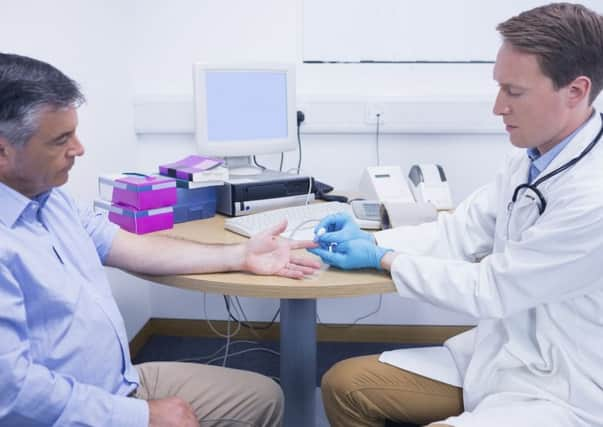Deprived Scots fare worse due to belief that GPs '˜don't care'


Previous studies have demonstrated that outcomes for patients in poorer neighbourhoods are worse than for their better-off counterparts.
But recent analysis carried out by the University of Glasgow’s Institute of Health and Wellbeing and the University of Southampton has shown the expectations of patients and the behaviour of GPs also differ significantly between high and low deprivation areas, and this has a direct impact on future well-being.
Advertisement
Hide AdAdvertisement
Hide AdThe team compared GP consultations in both low and high socioeconomic groups across Scotland and analysed the factors predicting how patients would fare.
Although many factors were linked to outcomes for patients, perceived physician empathy was the only consultation factor that predicted improved symptoms and well-being across social groups.
The study, which involved 659 patients seeing 47 doctors in 20 practices, found a patient’s perceptions of a physician’s empathy played a significant role in the state of their health a month on.
The findings also suggest the bedside manner of doctors serving deprived areas is less patient-centred than in more prosperous parts.
“This new paper adds to evidence already shown that the outcomes of the consultations are worse in such patients in deprived areas, and that an empathic patient-centred approach leads to better outcomes,” said Professor Stewart W Mercer, of the University of Glasgow.
There are higher levels of ill health and psychosocial problems among the most disadvantaged Scots. The report demonstrates the “inverse care law”, where the standard of medical care varies inversely with the need for it.
“It is not to suggest GPs working in deprived areas are un-empathetic, but rather that they face a higher workload and have patients with complex needs.
“Because of the inverse care law, the GPs in those deprived areas struggle to deliver patient-centred care due to time and resource constraints, and thus the NHS is not working best where it is needed most ,” added Prof Mercer.
The study was funded by the Scottish Government’s Chief Scientist Office.